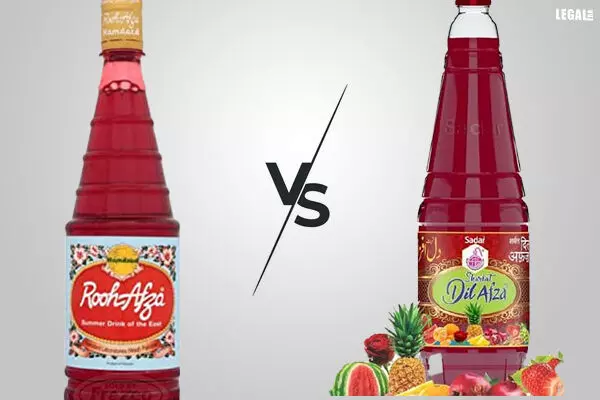- Home
- News
- Articles+
- Aerospace
- Agriculture
- Alternate Dispute Resolution
- Banking and Finance
- Bankruptcy
- Book Review
- Bribery & Corruption
- Commercial Litigation
- Competition Law
- Conference Reports
- Consumer Products
- Contract
- Corporate Governance
- Corporate Law
- Covid-19
- Cryptocurrency
- Cybersecurity
- Data Protection
- Defence
- Digital Economy
- E-commerce
- Employment Law
- Energy and Natural Resources
- Entertainment and Sports Law
- Environmental Law
- FDI
- Food and Beverage
- Health Care
- IBC Diaries
- Insurance Law
- Intellectual Property
- International Law
- Know the Law
- Labour Laws
- Litigation
- Litigation Funding
- Manufacturing
- Mergers & Acquisitions
- NFTs
- Privacy
- Private Equity
- Project Finance
- Real Estate
- Risk and Compliance
- Technology Media and Telecom
- Tributes
- Zoom In
- Take On Board
- In Focus
- Law & Policy and Regulation
- IP & Tech Era
- Viewpoint
- Arbitration & Mediation
- Tax
- Student Corner
- AI
- ESG
- Gaming
- Inclusion & Diversity
- Law Firms
- In-House
- Rankings
- E-Magazine
- Legal Era TV
- Events
- News
- Articles
- Aerospace
- Agriculture
- Alternate Dispute Resolution
- Banking and Finance
- Bankruptcy
- Book Review
- Bribery & Corruption
- Commercial Litigation
- Competition Law
- Conference Reports
- Consumer Products
- Contract
- Corporate Governance
- Corporate Law
- Covid-19
- Cryptocurrency
- Cybersecurity
- Data Protection
- Defence
- Digital Economy
- E-commerce
- Employment Law
- Energy and Natural Resources
- Entertainment and Sports Law
- Environmental Law
- FDI
- Food and Beverage
- Health Care
- IBC Diaries
- Insurance Law
- Intellectual Property
- International Law
- Know the Law
- Labour Laws
- Litigation
- Litigation Funding
- Manufacturing
- Mergers & Acquisitions
- NFTs
- Privacy
- Private Equity
- Project Finance
- Real Estate
- Risk and Compliance
- Technology Media and Telecom
- Tributes
- Zoom In
- Take On Board
- In Focus
- Law & Policy and Regulation
- IP & Tech Era
- Viewpoint
- Arbitration & Mediation
- Tax
- Student Corner
- AI
- ESG
- Gaming
- Inclusion & Diversity
- Law Firms
- In-House
- Rankings
- E-Magazine
- Legal Era TV
- Events
Supreme Court Upholds Delhi High Court Order Restraining Sale of ‘Dil Afza’ in Trademark Lawsuit by Rooh Afza

Supreme Court Upholds Delhi High Court Order Restraining Sale of ‘Dil Afza’ in Trademark Lawsuit by Rooh Afza
The Supreme Court by its coram comprising of Chief Justice of India DY Chandrachud and Justices PS Narasimha and JB Pardiwala upheld the order passed by the division bench of the Delhi High Court which restrained the manufacturers of a beverage company named ‘Dil Afza’ from selling the product after Hamdard Foundation filed a trademark infringement suit alleging that it was deceptively similar to its ‘Rooh Afza’ product.
The background of the case is that Hamdard Foundation had moved before the Delhi High Court alleging that the sale of another beverage by the name Dil Afza (manufactured by Sadar Laboratories) is deceptively similar to Rooh Afza and that the defendants had infringed on its trademark since the words ‘Dil’ and ‘Rooh’ have similar meanings.
It was also contended that the bottles in which the two products are being sold are similar.
The High Court in its order passed had observed that there was a clear connection between the words ‘Rooh’, which means soul, and ‘Dil’ meaning heart.
It had opined that prima facie, ‘Rooh Afza’ served as the source identifier for Hamdard for over a century and has acquired immense goodwill and it was essential to ensure that the competitors keep a safe distance from the mark.
The High Court had also noted that both the products have the ‘same deep red colour and texture’ and the ‘structure of the bottles is not materially different’ and thus opined that the commercial impression of the impugned trademark is deceptively similar to the appellant’s trademark.
During the hearing, Justice Narasimha had asked what difference would it make if a customer asks for Rooh Afza and gets Dil Afza instead.
To this, Hamdard’s counsel responded that the drink is century-old and has acquired a character.
“This drink is century-old and it has acquired a character...a structural phonetic and visual mark has to be compared as a whole...Division Bench [of High Court] has found circular rings in bottle which gives away dishonest intentions...They are selling since 2020 and we are selling since 1907...this looks like a variant of Rooh Afza...They are riding on my goodwill,” urged the counsel.
Accordingly, the Court observed that Rooh Afza has a well-established reputation across India and remarked that the Division Bench has held correctly.
The Court further expressed, “It is thus not difficult to conceive that a person who looks at the label of DIL AFZA may recall the label of ROOH AFZA as the word ‘AFZA’ is common and the meaning of the words ‘ROOH’ and ‘DIL’, when translated in English, are commonly used in conjunction.”
Accordingly, the Bench set aside the order of a single-judge which had dismissed the application filed by the Rooh Afza manufacturers seeking an injunction on the sale of Dil Afza and upheld the order passed by the division-judges of the Delhi High Court.




